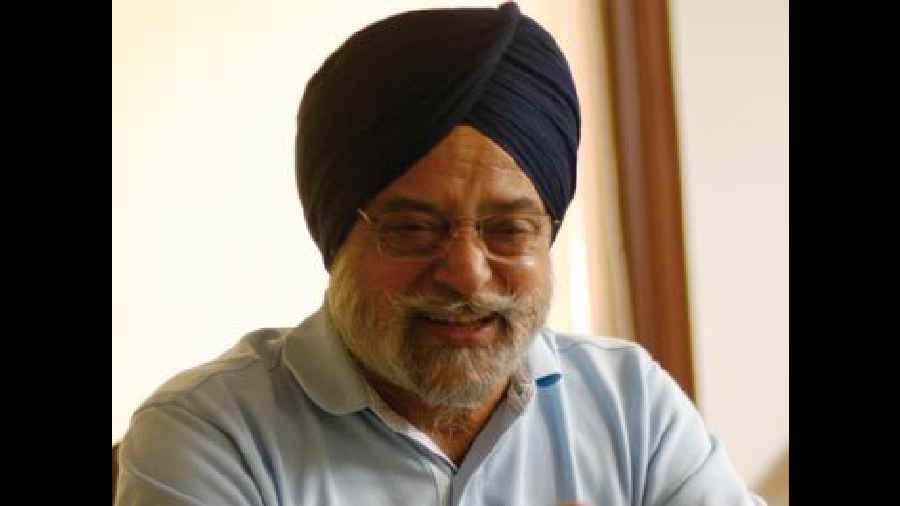Weighing in on the ongoing tussle between the government and the judiciary over the collegium system, retired Delhi High Court judge Justice R S Sodhi Monday said the two institutions should have a "mature debate" to come up with a solution.
Speaking to the news channel NDTV a day after Law Minister Kiren Rijiju shared on Twitter the former high court judge's interview clip on the Supreme Court "hijacking" the Constitution by deciding to appoint judges itself, Sodhi emphasised that the present collegium system was “absolutely arbitrary” and the executive and the judiciary should sit together to come up with a system for appointment of judges.
"It is absolutely arbitrary. I see no foundation for such highhandedness in appointment... You sit amongst yourself and make a system (and debate) whether you want the government over there or you don't,” he said.
"Both the bodies (judiciary and executive) are mature bodies. This (public quarrel) doesn't suit them. There should be a mature debate... Sit together and come up with a solution. You are the cream of the society... If someone like me makes a statement, you shoot off from his shoulder. Is this a debate? Show maturity and find a solution," Sodhi said.
On Sunday, the law minister, while sharing the video of an interview by Sodhi, had tweeted that "actually majority of the people have similar sane views. It's only those people who disregard the provisions of the Constitution and mandate that the people think that they are above the Constitution of India." Hours later, Rijiju tweeted again to say that all the three organs of the State -- the legislature, the executive and the judiciary -- must work together in the larger interest of the nation.
The appointment of judges to the Supreme Court and the high courts has become a major flashpoint between the executive and the judiciary.
Sodhi told the news channel that Parliament makes the law and the courts have the power of judicial review over it and added it was not right to make his opinion “political”.
He explained that the collegium system was not envisaged in the Constitution and was unconstitutional and there should instead be a permanent secretariat in the high courts as well as the top court, having a pool of potential judges.
"Why I say it's unconstitutional is because this is not envisaged in the Constitution at all but it has been inserted in a manner that is why I say it is a hijack of the Constitution. They evolved a new system which was not envisaged,” Sodhi said.
"I had no idea I had said such a thing that would be splashed on the headline. I thought it was a very innocuous interview... I did not know I had stirred the hornet's nest,” he shared.
While Rijiju has described the collegium system to appoint judges as something "alien" to the Indian Constitution, Vice President Jagdeep Dhankhar has questioned the top court for striking down the National Judicial Appointments Commission Act (NJAC) and a related Constitutional amendment.
By bringing the NJAC law, the government had sought to overturn the collegium system which came into being in 1992.
The apex court has questioned the government for delay in clearing the appointments of Supreme Court and high court judges.
Last week, the Supreme Court collegium had for the second time reiterated the names of two advocates for appointment as judges of the Calcutta High Court "expeditiously", saying it was not open for the government to repeatedly send back the same proposal.











